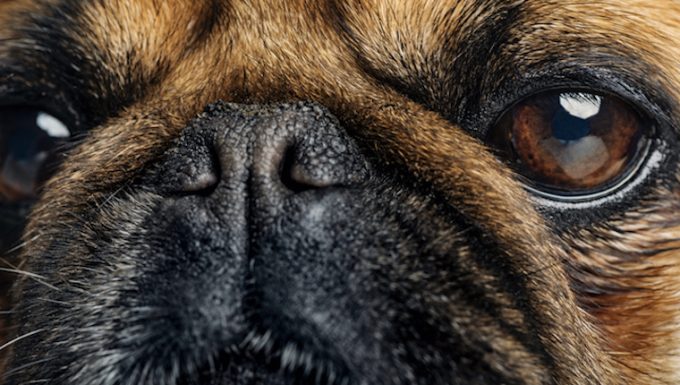Dry nose in dogs is a condition that affects a dog’s nose. Specifically, the condition causes the nose to feel dry and warm to the touch.
Generally, the condition can affect your dog’s daily activities. This is because sniffing helps your dog collect information about the environment around them.
Unfortunately, certain breeds can be predisposed to the condition.
If you see the signs of dry nose in your dog, then get to a veterinarian for a proper diagnosis and treatment.
Here’s what you should know about the symptoms, causes, and treatments for the condition.
Symptoms of Dry Nose in Dogs
The condition produces a range of symptoms. For example, some of the most common symptoms include:
- Nose that feels warm
- Bleeding
- Swelling
- Cracking
Causes of Dry Nose in Dogs

The cause of the condition can be a number of things. For instance, some of the most common causes include:
- Sunburn
- Lupus
- Dehydration
- Flu
- Anxiety
- Auto-immune conditions
- Allergies
- Coughing
- Sneezing
- Fever
Additionally, brachycephalic breeds can be predisposed to the condition. For example, Bulldogs and Pugs suffer from the condition a lot.
Treatments for Dry Nose in Dogs
Firstly, your vet will ask about your dog’s symptoms. Secondly, your vet will ask about your dog’s full medical history. This will include any specific problems for brachycephalic breeds.
Thirdly, a full physical examination will be carried out. This will involve your vet examining your dog’s nose.
Generally, treatment for the condition will target the underlying cause first. For example, this can involve medication for allergies.
As always, if your vet prescribes your dog any medicine, make sure to stick to the correct dose and frequency instructions. Also, complete the full course of medicine.
Additionally, prescription lotions for your dog’s nose can help clear up the condition. Just remember to avoid over-the-counter lotions as they may not be safe if your dog licks their nose.
Have you ever cared for a dog who suffered from this condition? How did your vet help your dog recover? Let us know in the comments section below.








